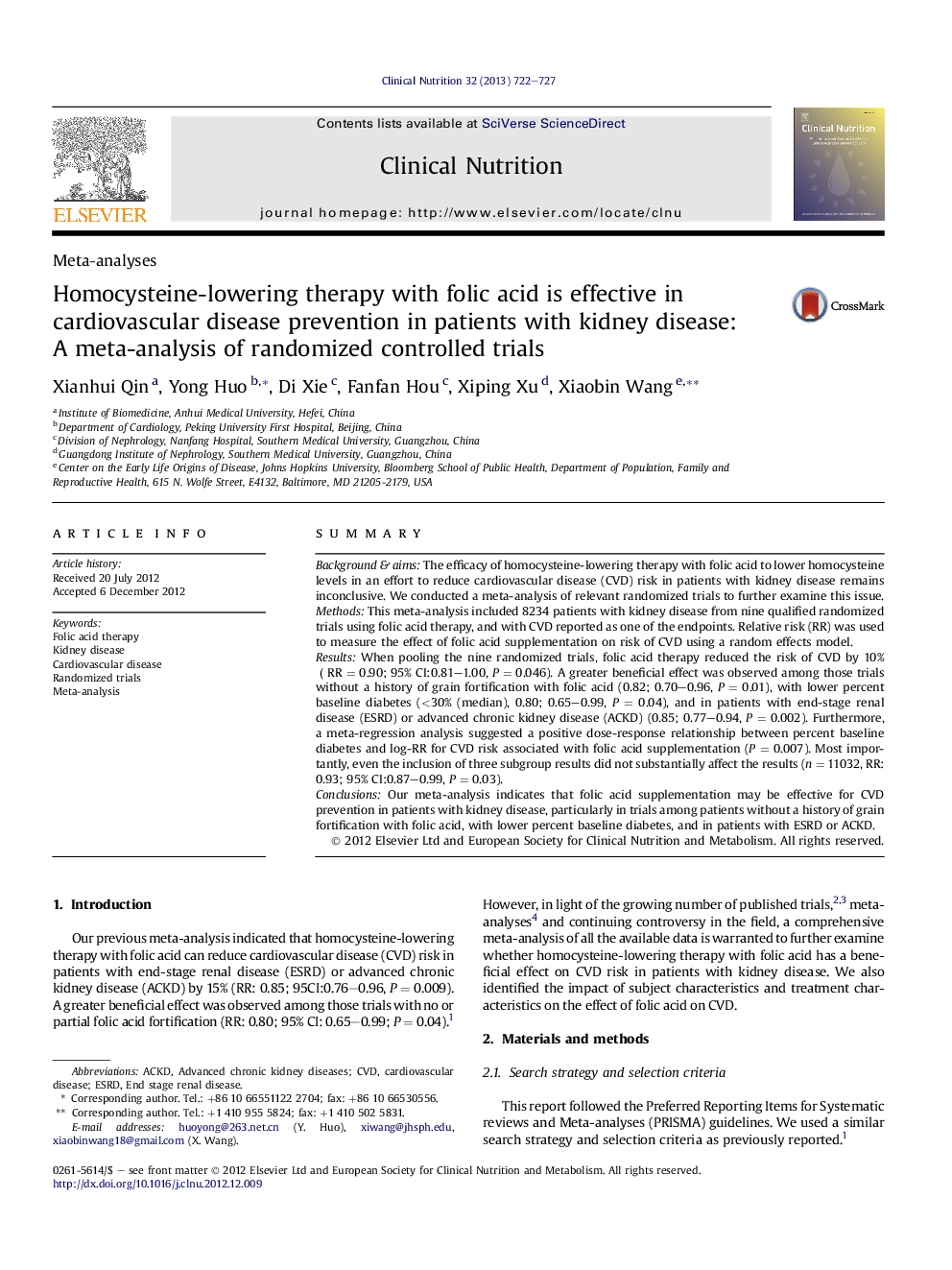| Article ID | Journal | Published Year | Pages | File Type |
|---|---|---|---|---|
| 2689604 | Clinical Nutrition | 2013 | 6 Pages |
SummaryBackground & aimsThe efficacy of homocysteine-lowering therapy with folic acid to lower homocysteine levels in an effort to reduce cardiovascular disease (CVD) risk in patients with kidney disease remains inconclusive. We conducted a meta-analysis of relevant randomized trials to further examine this issue.MethodsThis meta-analysis included 8234 patients with kidney disease from nine qualified randomized trials using folic acid therapy, and with CVD reported as one of the endpoints. Relative risk (RR) was used to measure the effect of folic acid supplementation on risk of CVD using a random effects model.ResultsWhen pooling the nine randomized trials, folic acid therapy reduced the risk of CVD by 10%(RR = 0.90; 95% CI:0.81–1.00, P = 0.046). A greater beneficial effect was observed among those trials without a history of grain fortification with folic acid (0.82; 0.70–0.96, P = 0.01), with lower percent baseline diabetes (<30% (median), 0.80; 0.65–0.99, P = 0.04), and in patients with end-stage renal disease (ESRD) or advanced chronic kidney disease (ACKD) (0.85; 0.77–0.94, P = 0.002). Furthermore, a meta-regression analysis suggested a positive dose-response relationship between percent baseline diabetes and log-RR for CVD risk associated with folic acid supplementation (P = 0.007). Most importantly, even the inclusion of three subgroup results did not substantially affect the results (n = 11032, RR: 0.93; 95% CI:0.87–0.99, P = 0.03).ConclusionsOur meta-analysis indicates that folic acid supplementation may be effective for CVD prevention in patients with kidney disease, particularly in trials among patients without a history of grain fortification with folic acid, with lower percent baseline diabetes, and in patients with ESRD or ACKD.
